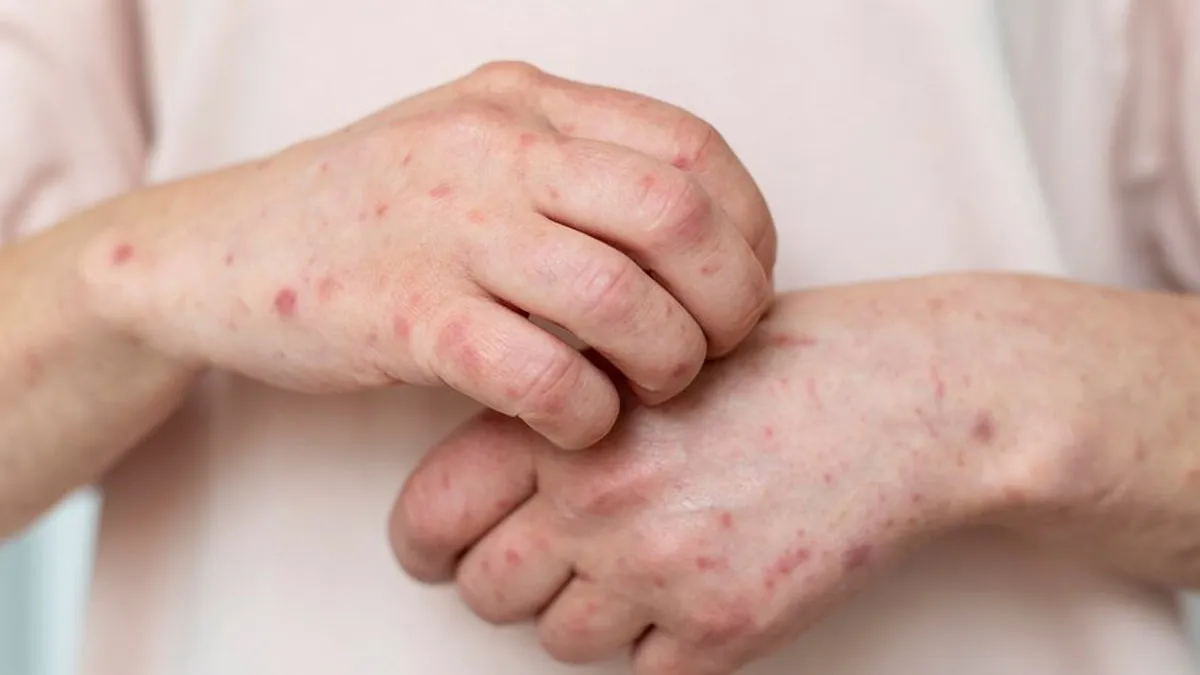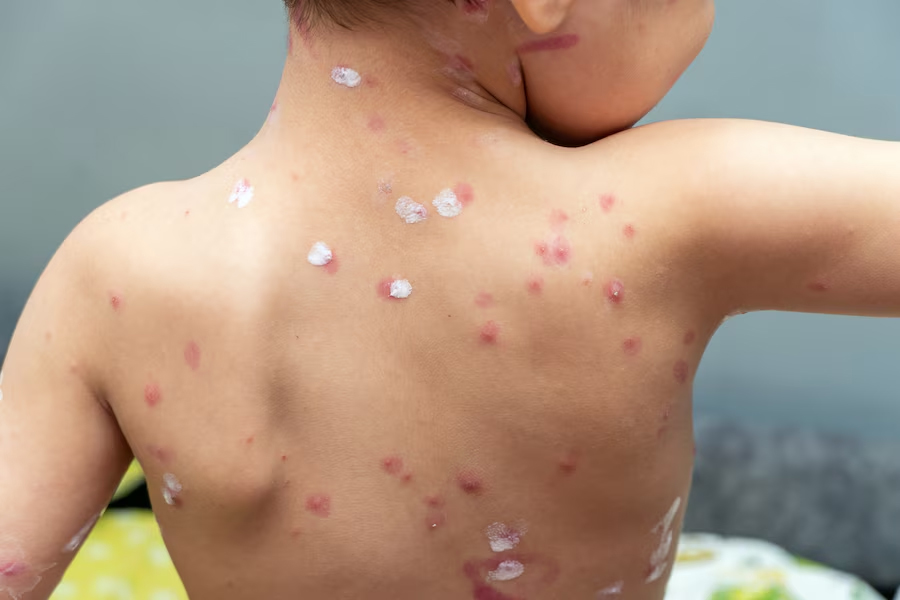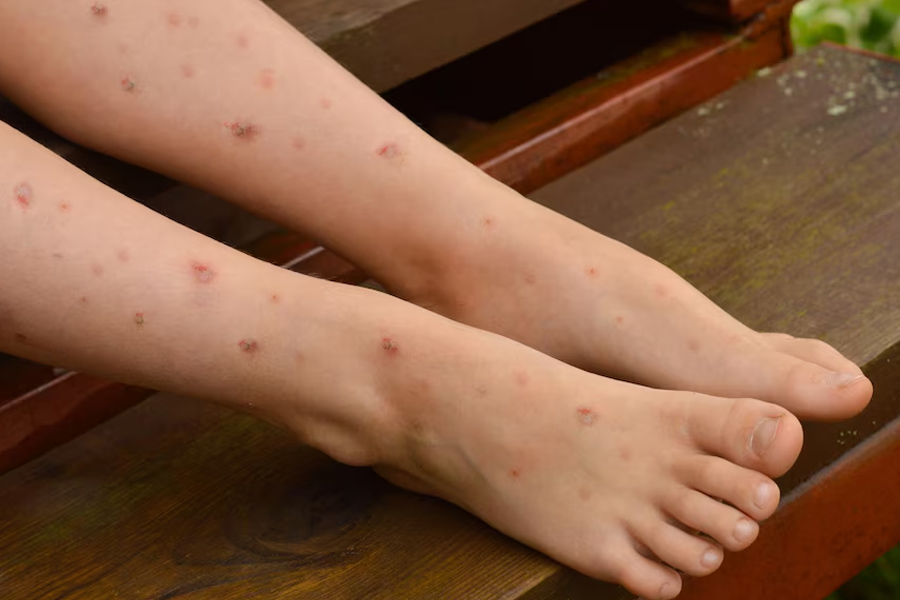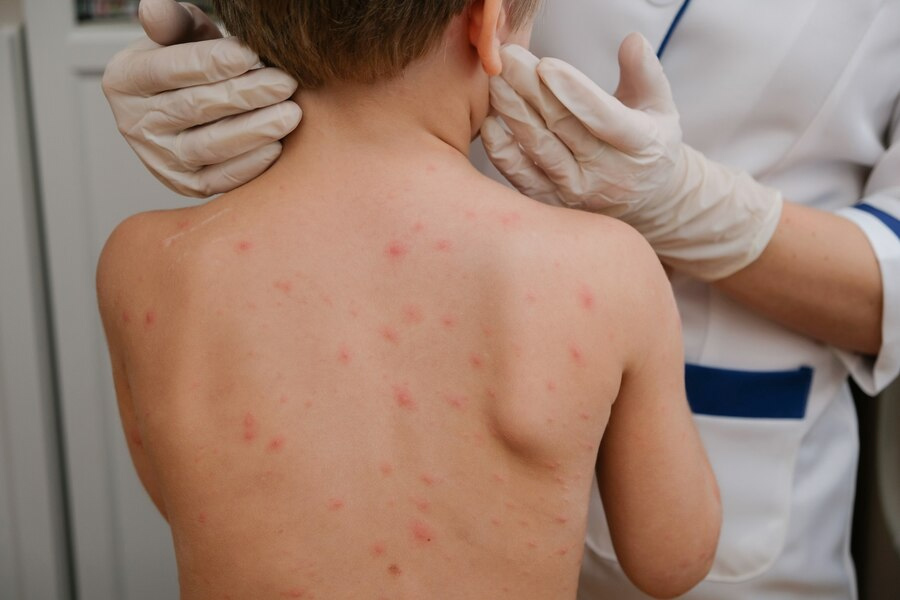
Chickenpox is probably one of the most dreaded diseases, especially in children. While it isn't caused by chicken, it got its name from the look of the rash that comes along with the illness. It is thought to resemble the pecks of chickens or refer to the smaller size of the blisters as compared to other pox diseases. Medically, chickenpox is called varicella zoster infection.
Table of Content:-
The good news is that if you have had chickenpox once, you are unlikely to get it again. Reinfection is very rare with chickenpox, and to understand why, OnlyMyHealth spoke to Dr Irfana, Consultant - Infectious Diseases, Infectious Diseases, BLK-Max Super Speciality Hospital, New Delhi.
Also Read: Chickenpox Scars Occur In 18% Of Infections: Expert Shares Causes, Precautions, And Treatment
What Is Chickenpox?

Chickenpox is a highly contagious disease that is caused by the varicella-zoster virus (VZV), which is a type of herpes virus. It can spread from one person to another through direct contact with an infected person or by breathing in droplets from a cough or sneeze.
According to the US Centers for Disease Control and Prevention (CDC), up to 90% of people who are not immune and close to someone with chickenpox will get infected.
Symptoms Of Chickenpox
Some of the common signs and symptoms of chickenpox include
- A high fever that can last a few days
- Feeling tired or irritable for a couple of days
- Loss of appetite
- Headache
- Stomach ache
- Sore throat
- Neck pain
- Difficulty breathing
A classic sign of chickenpox is a rash that turns into itchy, fluid-filled blisters that eventually turn into scabs. According to the CDC, the rash may first show up on the chest, back, and face before it spreads to the rest of the body. It may come as a surprise to many to know that a person with chickenpox may have as many as 500 blisters.
Why People Do Not Get Chickenpox Twice

“Chickenpox reinfection is rare because the body produces immunoglobulin G (IgG) antibodies against the virus, which confers lifelong immunity,” explained Dr Irfana.
IgG is a type of antibody that helps the body fight infections and is the most common antibody in the blood, making up about 75% of serum antibodies.
However, Dr Irfana shared that reinfection can occur in very rare cases, wherein the primary infection occurred very early in infancy or if it was very mild. It can also be seen in patients with weak immunity, like cancer, Human Immunodeficiency Virus (HIV), and immunosuppressed patients.
It is also important to note that once a person recovers from chickenpox, the virus remains dormant in the body. And when this virus reactivates, it can cause shingles later in life.
Also Read: What Are The Differences Between Chickenpox And Monkeypox?
Management Tips For Chickenpox

Management of chickenpox includes droplet and contact isolation until all the scabs fall off, taking paracetamol for fever, adequate hydration, and avoiding scratching, said Dr Irfana.
“If symptoms are severe, please consult a doctor who can prescribe antivirals.
“If a child with chickenpox has very high fever, dehydration, severe rash with secondary infection, or drowsiness, or respiratory distress, consult a doctor immediately,” she added.
What Precautions Should People Take If They've Never Had Chickenpox?
While chickenpox usually lasts 4-7 days, it can turn serious and cause life-threatening complications during pregnancy and in babies, adolescents, adults, and people with weakened immune systems.
If you are someone who hasn't been infected with chickenpox, here are some precautions recommended by Dr Irfana:
- All children should be vaccinated with two doses of varicella vaccine at 12-15 months of age and at 4-6 years of age. It can be taken immediately after getting exposed to a chickenpox patient.
- All adolescents and adults, all childbearing-age group women planning pregnancy who were not infected earlier, should take two doses of varicella vaccine. Pregnant patients cannot take the vaccine.
- All adults should consult a doctor for antivirals. Acute complications include pneumonia and meningoencephalitis, with the virus infecting the lungs and brain, respectively.
- The chickenpox virus sits dormant in the nerve roots and reactivates when there is weakened immunity and advanced age, which can be prevented by two doses of shingles vaccines for all adults above 50 years of age.
Conclusion
Chickenpox is mostly a once-in-a-lifetime disease. Rarely does it affect a person twice. However, for people who have had chickenpox, the possibility of shingles increases later in life. For those who are yet to develop chickenpox, it is crucial to take necessary measures to prevent complications if and when you do. One of the ways is by getting the chickenpox/varicella vaccine, which can not only prevent the illness but also reduce complications. CDC suggests that two doses of the vaccine are about 90% effective at preventing chickenpox. With that in mind, ensure that you are well-equipped to fight the illness when it does come, and if you have had it already, maintain a strong immune system.
Also watch this video
How we keep this article up to date:
We work with experts and keep a close eye on the latest in health and wellness. Whenever there is a new research or helpful information, we update our articles with accurate and useful advice.
Current Version